Text
If Memoriam was on netflix
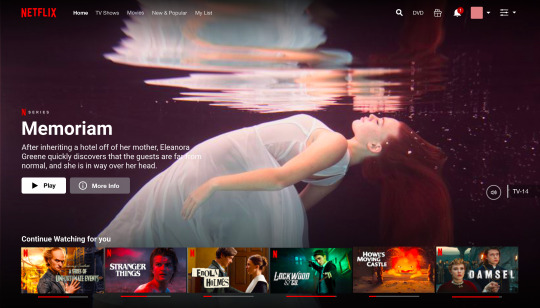

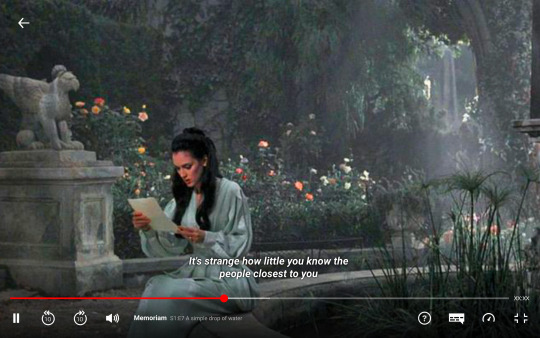
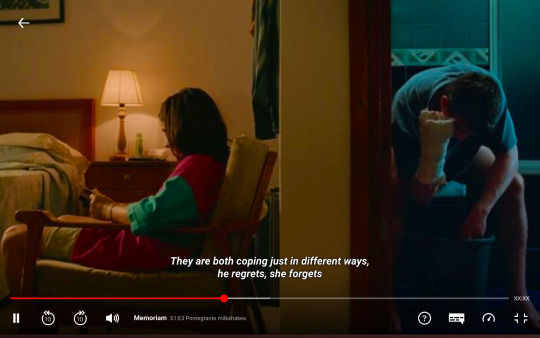
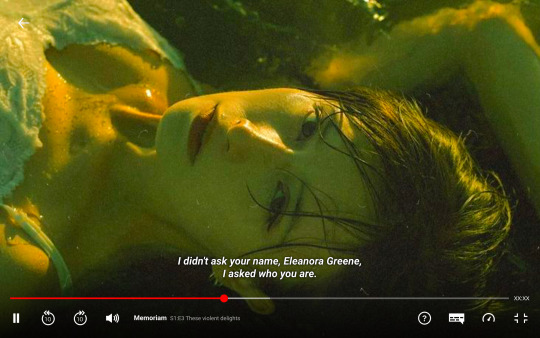
'memoriam is available for pre-order now!:
#writeblr#writers of tumblr#writing#bookish#booklr#fantasy books#creative writing#book blog#ya fantasy books#ya books#writers block#national novel writing month#writers#am writing#fantasy writer#female writers#fiction writing#how to write#story writing#teen writer#tumblr writers#tumblr writing community#writblr#writer problems#writer stuff#writerblr#writers community#writers life#writers corner#writers on tumblr
3 notes
·
View notes
Text
#writeblr#writers of tumblr#writing#bookish#booklr#fantasy books#creative writing#ya fantasy books#book blog#ya books
1 note
·
View note
Text
#writeblr#writers of tumblr#writing#bookish#booklr#fantasy books#creative writing#book blog#ya fantasy books#ya books
0 notes
Text
OC Interview tag game
Thanks for the tag @illarian-rambling <3
I'm going to use Catherine from my series the isles for this
1. Are you named after anyone?
Having a name beginning with C is traditional in my family (I have a twin called Caleb and my mother is called Cassandra) however I am not named after anyone specific.
2. When was the last time you cried?
Last night.
3. Do you have kids?
......Next question please.
4. Do you use sarcasm a lot?
I don't know, do i?
5. What's the first thing you notice about people?
Being the daughter of a detective I tend to inspect people upon meeting them, I don't even notice that I am doing it half the time.
6. What's your eye colour?
A gray-ish blue.
7. Scary movies or happy endings?
Happy endings.
8. Any special talents?
I can sprout golden wings, I just don't know how to...
9. Where were you born?
In the Aerlands region, however my family moved around a lot throughout my life.
10. Do you have any pets?
I suppose you called call my dragon a 'pet', however it is more that I am her guardian than her owner.
11. What sort of sports do you play?
I do not know if it counts as a sport, however I am especially good at archery.
12. How tall are you?
I am relatively tall for a woman my age, I am not entirely sure of my exact height but I am around 5'7 to 5'9
13. What was your favorite subject in school?
I was not traditionally educated, more just left in our home library growing up, I was especially interested in secret codes such as flower language.
14. What is your dream job?
I have never really given it thought before, I suppose if I did not end up becoming a pirate I would have tried to follow in my fathers footsteps and become a detective.
Tagging with no pressure: @mjparkerwriting @sugar-phoenix @theunboundwriter @writingamongther0ses
#writeblr#writers of tumblr#writing#bookish#booklr#fantasy books#creative writing#book blog#ya fantasy books#ya books#fiction writing#how to write#writers#am writing#fantasy writer#female writers#story writing#tumblr writers#teen writer#tumblr writing community#writblr#writer problems#writer stuff#writerblr#writers community#writers corner#writers on tumblr#writers life#writerscommunity#writerscorner
17 notes
·
View notes
Text
Trope chats: redemption arcs

The redemption arc is a widely used trope in storytelling across different media forms such as literature, film, television, and video games. This narrative device involves a character's journey from a morally questionable or villainous position to one of redemption, often by acknowledging their faults, seeking forgiveness, and taking action to atone for their wrongdoings. The redemption arc is a powerful literary device that allows creators to explore complex themes of morality, growth, and transformation. This essay will delve into the evolution of the redemption arc, its pitfalls, uses as a literary device, and its societal influence and impact.
The redemption arc has been a staple of storytelling for centuries, with roots in ancient literature and religious texts. Key aspects of its evolution include:
Classical Archetypes: In classical literature, redemption arcs can be found in works such as Dante's Divine Comedy, which follows the protagonist's journey through Hell, Purgatory, and Heaven. Similarly, in Greek mythology, figures like Heracles seek redemption through their heroic deeds.
Religious Narratives: Many religious narratives feature themes of redemption, such as the Christian story of salvation and forgiveness through Christ's sacrifice. These stories have influenced broader cultural conceptions of redemption.
Literary Movements: The redemption arc evolved with literary movements such as Romanticism and the Gothic tradition, which often explored the complexities of human nature and the potential for redemption and transformation.
Modern and Contemporary Interpretations: In contemporary media, the redemption arc is a versatile trope found in genres ranging from crime dramas to superhero stories. It has been adapted to reflect modern values and ethical considerations.
While the redemption arc can be a compelling narrative device, it also presents certain pitfalls:
Lack of Depth: If the arc is rushed or lacks depth, it may feel unearned or forced, making it difficult for the audience to empathize with the character's transformation.
Simplified Morality: Redemption arcs can sometimes oversimplify moral complexities, presenting a binary view of good and evil without adequately exploring gray areas.
Perpetuation of Harmful Stereotypes: In some cases, redemption arcs can perpetuate stereotypes or reinforce problematic narratives, particularly if the character's redemption is tied to harmful tropes such as the "tragic backstory."
Redemption Without Consequences: In some stories, characters may achieve redemption without facing the full consequences of their past actions, which can undermine the seriousness of their transformation.
The redemption arc is a versatile literary device that serves several purposes:
Character Development: Redemption arcs allow for rich character development, showcasing a character's growth and transformation over time.
Exploration of Themes: This trope provides a vehicle for exploring themes such as forgiveness, accountability, and the potential for change.
Emotional Engagement: Audiences often find redemption arcs emotionally engaging as they witness a character's journey from darkness to light.
Social Commentary: Redemption arcs can offer social commentary on issues such as criminal justice, rehabilitation, and the possibility of second chances.
The redemption arc has a significant influence on societal perceptions and values:
Rehabilitation and Forgiveness: Stories of redemption can shape attitudes toward rehabilitation and forgiveness, both on an individual and societal level.
Second Chances: Redemption arcs emphasize the importance of giving individuals a second chance, reflecting and reinforcing societal values of compassion and understanding.
Ethical and Moral Reflection: Through redemption arcs, audiences are prompted to reflect on their own beliefs and ethical considerations, fostering greater empathy and awareness.
Normalization of Transformation: Redemption arcs normalize the idea of personal growth and transformation, suggesting that individuals have the potential to change for the better.
The redemption arc is a powerful and enduring trope in storytelling that has evolved over time to reflect changing societal values and ethical considerations. While it offers rich opportunities for character development and emotional engagement, it also carries potential pitfalls that creators must navigate carefully. By understanding the nuances of the redemption arc, storytellers can craft compelling narratives that resonate with audiences and prompt reflection on themes of morality, forgiveness, and the possibility of redemption.
#writeblr#writers of tumblr#writing#booklr#bookish#fantasy books#creative writing#book blog#ya fantasy books#ya books#fiction writing#writers#female writers#how to write#writers and poets#writers on tumblr#am writing#fantasy writer#story writing#teen writer#tumblr writers#tumblr writing community#writblr#writer problems#writer stuff#writerblr#writers corner#writers community#writers life#writerscommunity
18 notes
·
View notes
Text
Deep dives into folklore: changelings

Changelings are a captivating element of folklore across various cultures, with stories of these enigmatic creatures appearing in European traditions and beyond. The changeling myth revolves around the idea that fairies, elves, or other supernatural beings would abduct human children, replacing them with their own offspring or elderly individuals. These substitutes would appear identical to the human children they replaced but would often behave strangely, causing confusion, fear, and distress among families. Understanding the changeling myth requires exploring its origins, its role in society, and its impact on cultural beliefs and practices.
The changeling myth likely originated in pre-modern societies as a way to explain unexplained or distressing occurrences, particularly related to children. This may include:
Infant Illness and Developmental Disorders: In times when medical knowledge was limited, unexplained changes in a child's behavior, health, or appearance (such as sudden illness, developmental delays, or behavioral issues) could have been attributed to a changeling.
Cultural Beliefs in Supernatural Beings: Many societies believed in the existence of fairies, elves, and other supernatural beings who inhabited the natural world alongside humans. These beings were often seen as mischievous or malevolent, giving rise to stories of abduction and replacement.
Fear of the Unknown: The changeling myth reflects a deep-seated fear of the unknown and uncontrollable aspects of life. The concept of a child being replaced by a supernatural entity could represent broader anxieties about loss, change, and the mysteries of existence.
The changeling myth had a profound impact on society in several ways:
Treatment of Children: In some cases, suspected changelings were mistreated or even harmed in an attempt to expel the supernatural being and bring back the real child. This was often based on the belief that the changeling would reveal itself under duress.
Impact on Mothers and Families: The myth could lead to blame and ostracization of mothers if their child exhibited unusual behavior or illness. This added to the emotional burden and challenges faced by families.
Cultural Narratives: Changelings became a common motif in folklore, literature, and art. Stories and ballads often depicted the struggle of families to reclaim their children or the strange behavior of changelings.
Symbolism and Metaphor: The changeling myth has been interpreted symbolically in modern times, representing feelings of alienation or otherness. It can be seen as a metaphor for the challenges of parenting a child with special needs or the experience of not fitting into societal norms.
In contemporary culture, the changeling myth continues to resonate, finding its place in literature, film, and other media. Modern interpretations often explore themes of identity, transformation, and the boundaries between reality and fantasy. Additionally, the changeling myth serves as a reminder of the dangers of superstition and the importance of understanding and compassion, especially for those who may be different or marginalized.
The changeling myth is a multifaceted and enduring element of folklore that has influenced cultural beliefs and practices throughout history. It reflects the deep-seated fears and anxieties of past societies while continuing to captivate the imagination today. By understanding the origins and impact of the changeling myth, we can gain insight into the complexities of human experience and the ways in which folklore shapes our perceptions of the world.
#writeblr#writers of tumblr#writing#bookish#booklr#fantasy books#creative writing#book blog#ya fantasy books#ya books#deep dives into folklore#deep dives#myths#legends#folklore#changelings#fae#faeries#elves
8 notes
·
View notes
Text
Thank you all for the well wishes sent over the past couple of days, I did not mean to attract as much attention as I did but I am glad to be apart of the community that I am, deep dives will be back tonight <3
#writeblr#writers of tumblr#writing#bookish#booklr#fantasy books#creative writing#book blog#ya fantasy books#ya books
0 notes
Text
sorry i know ive disappeared for like a week and a half, I've just moved out of my family home and my life is kinda all over the place atm, regularly scheduled programming will continue Monday onwards
#writeblr#writers of tumblr#writing#bookish#booklr#fantasy books#creative writing#book blog#ya fantasy books#ya books
10 notes
·
View notes
Text
#writeblr#writers of tumblr#writing#bookish#booklr#fantasy books#creative writing#book blog#ya fantasy books#ya books#fiction writing#how to write#writers#am writing#fantasy writer#female writers#story writing#teen writer#tumblr writers#tumblr writing community#writblr#writer problems#writer stuff#writerblr#writers community#writers corner#writers on tumblr#writers life#writerscorner#writerslife
223 notes
·
View notes
Text
#writeblr#writers of tumblr#writing#bookish#fantasy books#booklr#book blog#creative writing#ya fantasy books#ya books#fiction writing#fantasy writer#am writing#how to write#female writers#story writing#teen writer#writer stuff#tumblr writers#writblr#tumblr writing community#writerblr#writers#writer problems#writers corner#writerscommunity#writers on tumblr#writerscorner#writers life#writerslife
9 notes
·
View notes
Text
#writeblr#writers of tumblr#writing#bookish#booklr#fantasy books#creative writing#book blog#ya books#ya fantasy books#folklore#deep dives#deep dives into folklore#myths#legends#mythology
1 note
·
View note
Text
Excerpt of 'Memoriam'

Somehow the moment directly after waking was more terrifying than the dream itself. She was frozen in place with the fear that somehow if she moved anything other than her eyes then something terrible would happen. Heart beating in her head and a tremor overtaking her legs.
In an attempt to calm herself, she tried to familiarise herself with the surroundings, using logic to push away the intrusive thoughts trying to convince her that the silhouettes in room thirteen were actually people hiding in the shadows.
After what felt like hours of telling herself to move as she eventually worked up the courage to reach the lamp. Sitting for a little longer before daring to swing her legs over the edge of the bed, heaving to get more oxygen into her lungs as she stood.
She needed to get out of this room.
So there she was, wandering the first floor of The Echo hotel in slippers and a dressing gown, unsure of a destination as she quickly found that the cafe was closed and the foyer was empty. Yet she dreaded the thought of returning to her room.
So she resorted to wading through the halls, finding somewhere to exist that doesn’t keep her in a state of fight or flight.
At first she could barely hear the noise, it was nothing but a low hum that only the walls could decipher, but soon it was unmistakable.
Someone was singing.
A beautiful melody floated their way through the halls of The Echo hotel, pulling her in, leading her to a door labelled ‘pool’.
In the back of her mind she knew that there was a pool somewhere in the hotel, but it had taken up until now for her to note where exactly it was, despite exploring most of the hotel during the first weeks of her stay. She must have wandered past this door before.
At first she was hesitant to enter the pool room at night, thinking that it would be the perfect place for her imagination to run wild as to what could be lurking in the shadows, her mind casted back to an old episode of ‘are you afraid of the dark?’ which only added to the paranoia.
But even against her better judgement she found herself shivering at the feeling of cool metal as she twisted the door knob.
The melody resonated against the tiles of the pool room, making her realise that she was chasing a symphony. To her surprise the pool was not abandoned for the night, and the lights were not flicked off.
Instead streaks of blue and white flickered across the walls and ceiling like lightning bolts.
While her fear ridden brain had convinced a corner of her mind that some shadow monster or water zombie was lurking in the pool room of The Echo hotel, instead she was met with a group of young women sat in or around the pool.
Some were singing, some were playing around and dancing across the water. She felt as if she had accidentally intruded on something forbidden as she soon noticed eyes on her “I… sorry, I didn’t think there would be people in here”
One of the woman sent her a soft smile, swimming across the pool at a lightning pace, resting her head on her arms as she met Eleanor at the edge of the pool “It is more than okay, we are always here, it is unavoidable, stay for a while” A sing songy voice greeted her.
Eleanor let out a soft laugh ducking down slightly to get closer “I just realised I’m not exactly dressed for a swim” A couple of girls around them giggled at the statement.“So who are you?” the girl at the edge of the pool asked, head to the side.
“My name is Eleanor”
The girl laughed again “I know your name Eleanora Greene, we have met before, I asked who you are” all of it sounded like riddles to Eleanor, catching her by surprise. “I- I hardly know I don’t think, I know I was probably a different person when you saw me last, I fear I have changed several times since then”
The girls smile widened at the answer “Not so much that you do not understand us though, you know more than you know Eleanora Greene”
Eleanora’s face scrunched together as she thought over the wording of the response and the self contradictions. “How can I know more than I know? Surely I just know what I know”
The girl hummed “Possibly, but you once knew more than what you know now, and yet at the same time you also know more than you did then, so the question truly is how much does anyone know?”
'Memoriam' is available for pre-order now:
#writeblr#writers of tumblr#bookish#writing#booklr#fantasy books#creative writing#book blog#ya fantasy books#ya books#fiction writing#how to write#writers#am writing#fantasy writer#female writers#story writing#teen writer#tumblr writers#tumblr writing community#writblr#writer problems#writerblr#writer stuff#writers community#writers corner#writers life#writers on tumblr#writerscommunity#writerscorner
1 note
·
View note
Text
Trope chats: Heroes becoming villains

In storytelling, the trope of heroes becoming villains has been a compelling narrative device that challenges conventional notions of heroism, morality, and redemption. From classic literature to modern media, this trope has evolved over time, reflecting shifting societal values and cultural anxieties. In this essay, we explore the evolution of heroes turning into villains in media, its societal influence and impact, its effectiveness as a storytelling device, and the potential pitfalls associated with its use
The trope of heroes becoming villains can be traced back to ancient myths and epics, where characters like Achilles in "The Iliad" or Oedipus in Greek tragedy undergo moral transformations that blur the lines between heroism and villainy. However, it was in later literary works, such as Shakespeare's "Macbeth" or Milton's "Paradise Lost," that this trope gained prominence, portraying protagonists who succumb to ambition or pride, leading to their descent into villainy.
In modern media, the trope has been reimagined and revitalized across various genres, including literature, film, television, and comics. Iconic examples include Walter White in "Breaking Bad," Anakin Skywalker/Darth Vader in "Star Wars," and Walter Kovacs/Rorschach in "Watchmen." These characters undergo complex journeys that explore themes of power, morality, and the human capacity for both good and evil.
The trope of heroes becoming villains often reflects broader societal anxieties and cultural shifts. In an increasingly complex and morally ambiguous world, audiences are drawn to narratives that challenge simplistic notions of heroism and villainy. The portrayal of heroes as flawed individuals who grapple with their darker impulses resonates with audiences who seek narratives that mirror their own struggles with morality and identity.
Moreover, the trope can serve as a cautionary tale about the corrupting influence of power, ambition, or ideology. By depicting the fall of heroic figures, storytellers can explore the consequences of unchecked hubris or moral compromise, prompting audiences to reflect on the choices they make and the values they uphold in their own lives.
The trope of heroes becoming villains can be a powerful storytelling device when executed effectively. By subverting audience expectations and challenging traditional archetypes, storytellers can create narratives that are morally and emotionally complex, engaging viewers on multiple levels. These stories often provoke thought, spark debate, and linger in the minds of audiences long after they've concluded.
Furthermore, the trope allows for rich character development, as protagonists grapple with internal conflicts and external pressures that shape their trajectories. The journey from hero to villain (or vice versa) provides opportunities for exploration of themes such as redemption, forgiveness, and the nature of evil, adding depth and nuance to the narrative.
Despite its potential, the trope of heroes becoming villains is not without its pitfalls. One common criticism is the risk of character inconsistency or betrayal of audience trust. When executed poorly, sudden shifts in character alignment can feel contrived or forced, undermining the emotional resonance of the narrative and leaving audiences feeling cheated or disconnected.
Additionally, the trope runs the risk of perpetuating harmful stereotypes or reinforcing cynical worldviews. By portraying all heroes as inherently flawed or destined for downfall, storytellers risk undercutting the aspirational qualities of heroism and promoting a nihilistic outlook on life.
The trope of heroes becoming villains has undergone a fascinating evolution throughout the history of storytelling, reflecting changing societal values and cultural anxieties. As a narrative device, it offers opportunities for exploration of complex themes and character dynamics, engaging audiences in thought-provoking ways. However, its effective execution requires careful consideration of character development, thematic resonance, and narrative integrity to avoid falling into the pitfalls of cliché or stereotype. When done well, stories that depict heroes turning into villains can challenge and inspire audiences, leaving a lasting impact on the cultural landscape of media and storytelling.
#writeblr#writers of tumblr#writing#bookish#booklr#fantasy books#book blog#creative writing#ya fantasy books#ya books#fiction writing#how to write#writers#am writing#fantasy writer#story writing#female writers#teen writer#tumblr writers#tumblr writing community#writer problems#writblr#writer stuff#writerblr#writers on tumblr#writers life#writers community#writerscorner#writers corner#writerscommunity
9 notes
·
View notes
Text
Deep dives into folklore: Greek plays
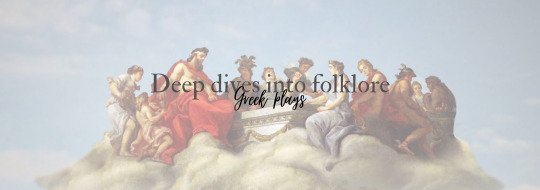
Ancient Greek plays, primarily produced during the 5th century BCE, hold a significant place in the annals of world literature and theatre. These plays, often performed in grand amphitheaters like the Theatre of Dionysus in Athens, served not only as entertainment but also as reflections of societal values, norms, and political ideologies. In this essay, we delve into the societal influence and impact of three iconic Greek plays: "Antigone" by Sophocles, "Oedipus Rex" by Sophocles, and "The Oresteia" trilogy by Aeschylus. Through an analysis of their plots and themes, we uncover their profound implications on ancient Greek society.
"Antigone" by Sophocles:
"Antigone" tells the story of a young woman, Antigone, who defies the orders of King Creon by burying her brother Polynices, who died fighting against Thebes. Creon has declared Polynices a traitor and decreed that his body should remain unburied, but Antigone believes in the divine law and the duty to bury her brother. Despite warnings and pleas from her sister Ismene and Creon's son Haemon, Antigone persists, leading to tragic consequences for herself and those around her.
"Antigone" reflects the tension between individual conscience and the laws of the state. In ancient Greece, the concept of divine law, or the unwritten laws of the gods, often clashed with human-made laws. Sophocles uses Antigone's unwavering commitment to burying her brother to critique the tyrannical nature of absolute power and the importance of moral duty. The play serves as a cautionary tale against unchecked authority and the consequences of hubris, resonating with audiences then and now.
"Oedipus Rex" by Sophocles:
"Oedipus Rex" centers on King Oedipus of Thebes, who unknowingly fulfills a prophecy by killing his father, King Laius, and marrying his mother, Queen Jocasta. As Oedipus investigates the murder of Laius to rid Thebes of a plague, he gradually uncovers the horrifying truth of his own identity and actions. Despite his efforts to evade fate, Oedipus cannot escape his tragic destiny, leading to his downfall and exile from Thebes.
"Oedipus Rex" explores themes of fate, free will, and the consequences of ignorance. In ancient Greece, the belief in fate, or moira, was deeply ingrained in the cultural psyche. Sophocles uses Oedipus's tragic journey to illustrate the limitations of human knowledge and the inevitability of destiny. The play prompts audiences to contemplate the complexities of the human condition and the hubris of challenging divine will. "Oedipus Rex" thus serves as a timeless examination of the interplay between fate and agency, leaving a lasting impact on Greek society and beyond.
"The Oresteia" Trilogy by Aeschylus:
"The Oresteia" trilogy consists of three interconnected plays: "Agamemnon," "The Libation Bearers," and "The Eumenides." The trilogy follows the cursed House of Atreus, plagued by a cycle of violence, betrayal, and vengeance. "Agamemnon" portrays the return of King Agamemnon from the Trojan War and his subsequent murder by his wife Clytemnestra in revenge for sacrificing their daughter Iphigenia. "The Libation Bearers" depicts the avenging actions of Agamemnon's son Orestes, who kills Clytemnestra to avenge his father's death. Finally, "The Eumenides" explores the trial of Orestes by the Furies and his eventual acquittal by Athena, marking the transition from primal vengeance to a system of justice in Athens.
"The Oresteia" trilogy grapples with the themes of justice, retribution, and the evolution of legal systems. Aeschylus uses the tragic saga of the House of Atreus to examine the cyclical nature of violence and the necessity of breaking free from the cycle of vengeance. The trilogy reflects the changing societal values in ancient Greece, particularly the shift from personal vendettas to the establishment of democratic institutions. By advocating for the rule of law and civic order, "The Oresteia" resonated with Athenian audiences and contributed to the cultural and political discourse of the time.
Ancient Greek plays like "Antigone," "Oedipus Rex," and "The Oresteia" trilogy continue to captivate audiences with their timeless themes and profound insights into the human condition. Through their exploration of societal norms, moral dilemmas, and political ideologies, these plays left an indelible mark on ancient Greek society and continue to influence literature, theatre, and philosophy to this day. As enduring classics of world literature, they serve as reminders of the enduring power of storytelling to provoke thought, inspire change, and transcend the boundaries of time and culture.
#writeblr#writing#bookish#writers of tumblr#booklr#fantasy books#creative writing#book blog#ya fantasy books#ya books#deep dives into folklore#folklore#deep dive#mythology#myths#legends#new books#book#book quotes#book review#books#book recommendation#book recommendations#booklover#booklovers#books and reading#bookworm
12 notes
·
View notes
Text
#writeblr#writers of tumblr#writing#bookish#booklr#fantasy books#book blog#creative writing#ya fantasy books#ya books#fantasy writer#am writing#female writers#fiction writing#how to write#story writing#teen writer#tumblr writers#tumblr writing community#writblr#writer problems#writer stuff#writerblr#writers
1 note
·
View note
Text
#writers of tumblr#writeblr#writing#bookish#booklr#fantasy books#creative writing#book blog#ya fantasy books#ya books#folklore#myths#legends
1 note
·
View note
Text
Haha the way that memoriam was going to be a seven book series and is now a standalone is wild and no one is ever going to know what was going to be in the other books
#i will take it to the grave#writeblr#writers of tumblr#writing#bookish#booklr#fantasy books#creative writing#book blog#ya fantasy books#ya books#writers block#national novel writing month#writers#wrestling#am writing#fantasy writer#female writers#fiction writing#how to write#story writing#teen writer#tumblr writers#tumblr writing community#writblr#writer problems#writer stuff#writerblr#writers community#writers corner
1 note
·
View note